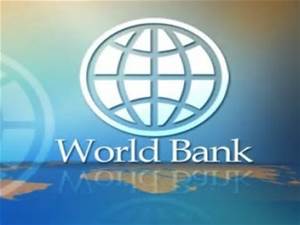A report by the World Bank has projected that growth will rebound in 2024, rising from a low of 2.6 per cent in 2023 to 3.4 per cent in 2024, and 3.8 per cent in 2025.
The World Bank’s latest Africa’s Pulse report said increased private consumption and declining inflation are supporting an economic rebound in Sub-Saharan Africa.
“However, the recovery remains fragile due to uncertain global economic conditions, growing debt service obligations, frequent natural disasters, and escalating conflict and violence,” it said.
Africa’s Pulse calls for several policy actions to foster stronger and more equitable growth. These include restoring macro-economic stability, promoting inter-generational mobility, supporting market access, and ensuring that fiscal policies do not overburden the poor.
Transformative policies are needed to address deep-rooted inequality to sustain long-term growth and effectively reduce poverty.
However, this recovery remains tenuous. While inflation is cooling across most economies, falling from a median of 7.1 to 5.1 percent in 2024, it remains high compared to pre-COVID-19 pandemic levels. Additionally, while growth of public debt is slowing, more than half of African governments grapple with external liquidity problems, and face unsustainable debt burdens.
Overall, the report underscores that despite the projected boost in growth, the pace of economic expansion in the region remains below the growth rate of the previous decade (2000-2014) and is insufficient to have a significant effect on poverty reduction. Moreover, due to multiple factors including structural inequality, economic growth reduces poverty in Sub-Saharan Africa less than in other regions.
World Bank Chief Economist for Africa, Andrew Dabalen “Per capita GDP growth of 1 percent is associated with a reduction in the extreme poverty rate of only about 1 per cent in the region, compared to 2.5 per cent on average in the rest of the world. In a context of constrained government budgets, faster poverty reduction will not be achieved through fiscal policy alone. It needs to be supported by policies that expand the productive capacity of the private sector to create more and better jobs for all segments of society.”
“Inequality in Africa is largely due to the circumstances in which a child is born and accentuated later in life by obstacles to participating productively in markets and regressive fiscal policies,” said Gabriela Inchauste co-author of a forthcoming World Bank report on tackling inequality in Sub-Saharan Africa. “Identifying and better addressing these structural constraints across the economy offers a road map for a more prosperous future.”



